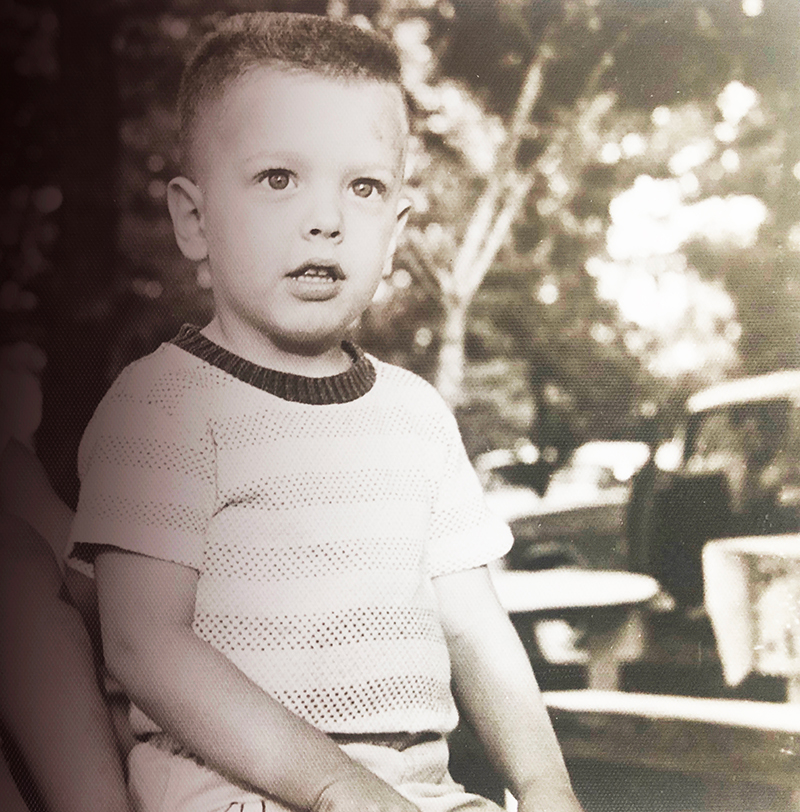
“I was especially moved by the poems evoking a well-loved younger brother…which feel so poignant, so valedictory.”
—Nathalie Anderson, PhD
Professor Emerita of English Literature & Pew Fellow,
Swarthmore College (on “Hush”)
Age ten, dressed in baggy clam-diggers
cinched at the waist with a rope.
Take note of his practiced pose, torso torqued
as he tries flicking a wrist.
Ask why he didn’t go out for Little League,
instead mastered the neighbor’s perfect pound cake.
Wince as he croons Tennessee Ernie Ford,
mimics Foghorn Leghorn’s
ah-cock, ah-doo-dle-doo.
Ask if he remembers how you shunned him
when friends came to play.
Admit you remember times he cried.
Now watch him fling the stone over water,
see it hopscotch then sputter like a bum firework
to the bottom.
Tell him you forgive him for taunting you
with a stick dipped in dog poop.
Ask his forgiveness for pretending to be an angel.
Now kiss the old soul goodbye.
—from Hush, Seven Kitchens 2022
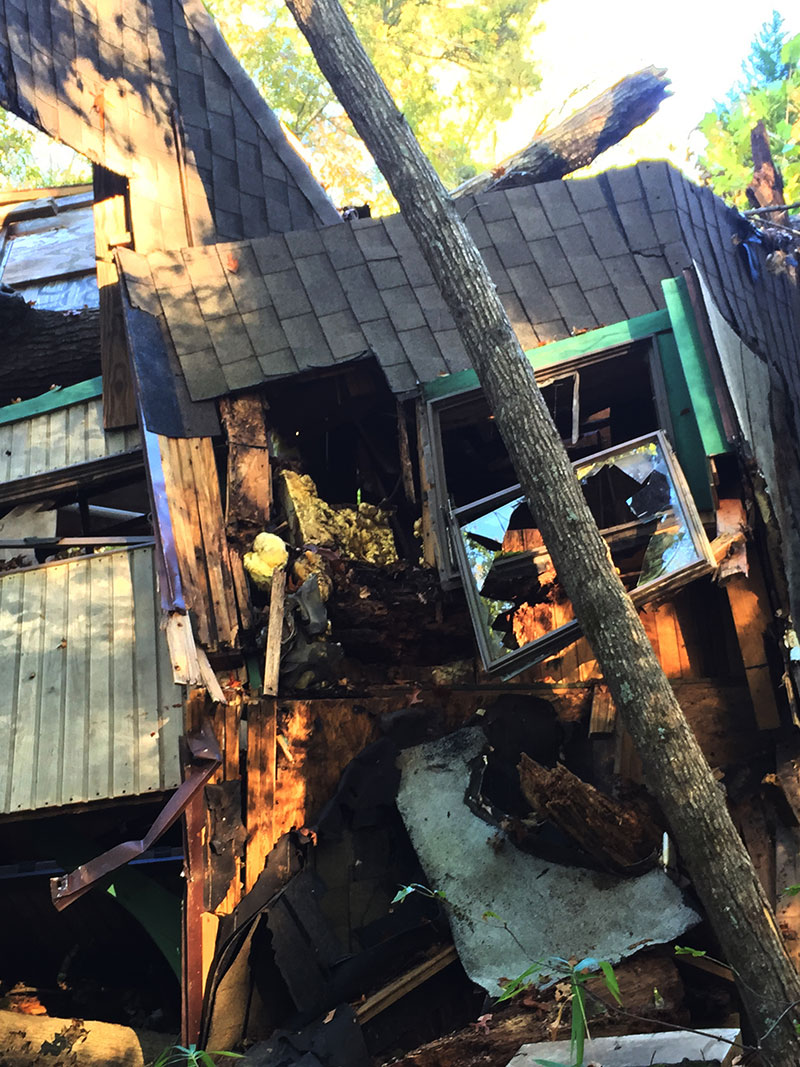
My brother lived in a treehouse
he built in three parts in his
woodworking shop, with a Dutch
roof and double-hung windows
painted teal, a wide-open
deck where he lounged, murmured
Cohen at night, breathed weed
to the river rush forty-seven
feet below. In the picture
from his October
junket to Yorkshire
his smile tilts, he stands rumpled
in front of a stacked-stone
wall, sky Cornwall blue
flocked in cumulus clouds, sheep
in the field, cobbled gray that
recedes out of view. That
he turned the wrong
way three days later, precisely
the moment the truck full of granite
surged full-speed toward his car
(the English would call it a quarry
lorry)—that it wasn’t
a gentler Mini or Vauxhall nearly
makes perfect sense.
That his treehouse came
down as he’d said it eventually
would—the triple-trunk oak sure
to slump from eroding bluffs to
the Saluda River. That it
foundered instead in the October
flood, same month as his
death thirteen years
earlier—this upheaval, this
high-water crash that shattered
glass and splintered wood, landed
uphill on the bluff’s soggy shoulders,
lay scattered among bones
of stranded fish, box-turtles hiding —I
believe he’d approve. In the photo
Mike’s eyes are sage, soft with
something like leaving.
—from Jasper, 2017

“It takes courage to vary the sense of mortality that each of these poems addresses.”
—Janice Moore Fuller, PhD
Professor of English & Writer-in-Residence (ret.),
Catawba College (on “Hush”)
the moon wasn’t saffron, harvest orange
or opalescent—
had you patiently relayed the truth of lunar color
how human eyes are deluded by layers
of refracted gray sediment;
had you said the moon was not in fact a perfect orb,
but an oblate spheroid stretched at polar ends
like an egg—
if you’d spoken of the pain
every midnight that kept you up and walking
floors in silence,
if you’d told me you’d known the end was near—
that you felt a near sense of relief.
Then I might have sat by your bedside
without pretending.
And you might have grieved
your body’s betrayal.
And I might have reached for your arm.
And that day, you might have laughed when I tried to paint
a portrait of your older sister to distract you,
though I knew nothing of oils—
how it lingered in our attic all those years after.
How my aunt told me later
you’d said it was lovely.
One final, benevolent lie.
—from Hush, Seven Kitchens 2022
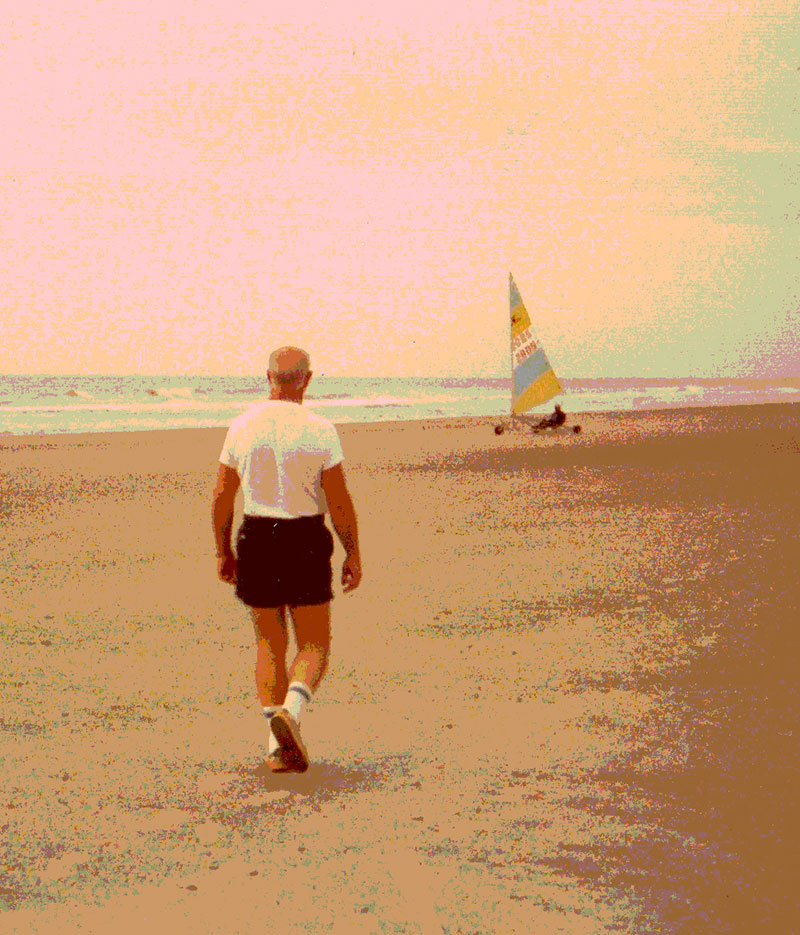
Our father’s feet were born of southern rivers—
Sunflower, Tennessee, Mississippi.
His feet were post-World-War jubilation, Scottish jigs,
poems by Robert Service with a practiced lilt.
They were ibeams & trusses, prefab metal sheeting,
engineers of fine houses & schools,
churches, hospital additions. Bold mechanical
rulers, pens clipped in shirt pockets.
His feet were rough-&-ready as the Bering Sea,
bold as zinnias in his summer garden.
His feet, undaunted, ascended Machu Pichu & Kilimanjaro,
climbed the gold spiral stairway to claim the finest loge
at the Moscow opera, two crystal glasses
full of Stolichnaya.
When he burned off his soles in the lake cabin grease fire,
we youngsters huddled in the back of the wagon
as our mother raced like a wild horse for town.
The only sound his low moan, steady as the hum of a motor.
All that summer we cavorted as his feet grew new bottoms,
sturdy as Chickamauga’s TVA dam.
In the days when our mother began her undiagnosed decline,
he’d come home from work weary, have us tug
the damp socks from his toes, then lie back with a sigh
in his leather recliner.
We didn’t know what to make of the silence, his feet unmoving,
wilted socks like little children. We would tiptoe
just past the TV with news barely buzzing, his eyes closed
for moments. His feet—flopped like moths succumbed in light.
—from Poetry South, 2020
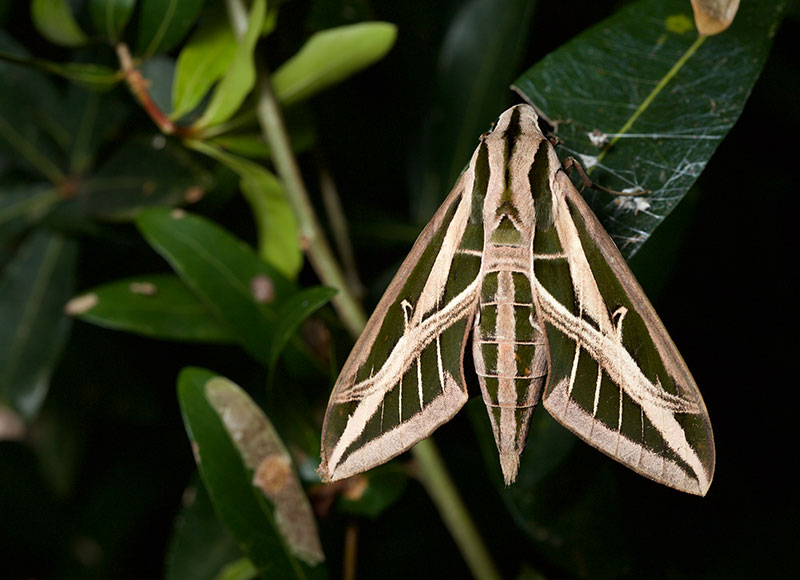
I’d seen clutched last night to the railing
its wings of veined mahogany like a master craftsman’s
the way my brother’s finest tables
were inlaid in gold and amber
yet, only the marsh hawk waits
atop the same wooden rail outside the same glass door
its wing-shoulders brownish-gray
as any familiar relative
and even its flight, when it senses
the small breeze of my arrival, appears
blasé as a loping dog
Last night, the next-door young couples
played guitar as midnight lapsed into new year
sang Jolene in a lusty chorus
that rose and fell like the distant sea pulled
by a stranger’s violin
I ask my husband about the banded moth
Gone, he says, at first light
without a hint of nuance
the same way wonder disappears, the way
dust becomes fugitive
My eyes trace mid-morning’s
pale pentimento of moon
while at the edge of marsh a stalking ibis
is osmosed in plumes of fog
where sun glints cold creek
and we find no reason to speak
as the hawk melds like another riddle into winter’s
moss-draped bones
—from Quiet Diamonds, 2022
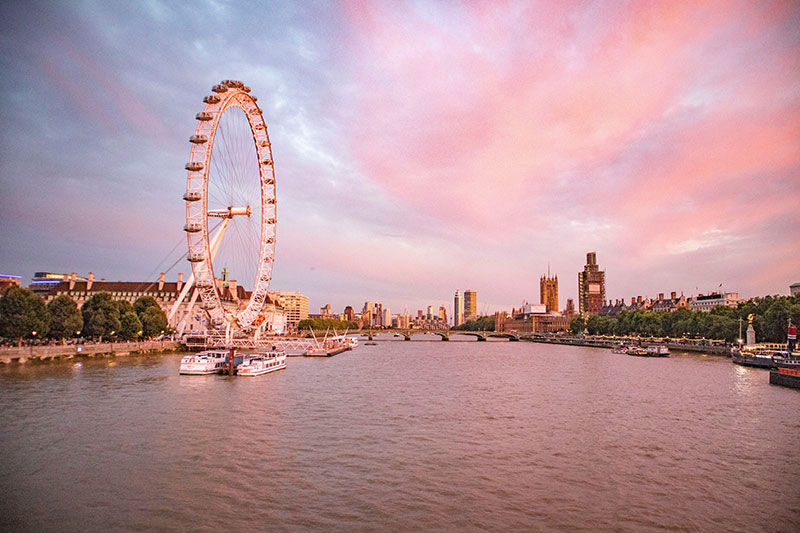
I imagine how weary, posed silver-coated
atop a pedestal with frozen limbs
in the sunny plaza in front of London Bridge
while we passers-by stop to stare
him atop a wood pedestal with frozen limbs
little children gazing as if enchanted
by his unblinking eyes
while we passers-by stare
little children stock-still as if enchanted
locals stroll past oblivious
while we on-lookers stand and stare
the London Eye turning imperceptibly
while locals stroll past oblivious
the way we grow numb to the familiar
the way the London Eye turns imperceptibly
I cannot help but wonder if someone notices
the way I must turn impervious
to scenes of suffering frozen on my screen
I can’t help but wonder if someone notices
the way I dread his eyes finding mine
the way suffering freezes untouchable
I do not want to see him break character
his eyes to find mine
as the Thames flows by, a silent scrim
I do not want to see him crack
lips pursed urgently around a bottled water
as the Thames flows by, a silent scrim
where the locals stroll past
as he slakes his need for relief
lowers his slender body to the park bench
children gaze still as if enchanted
they will learn, too soon, of deception
I imagine how weary, the way he lowers
his lids—heavy, silver-coated
—from Kakalak, 2022
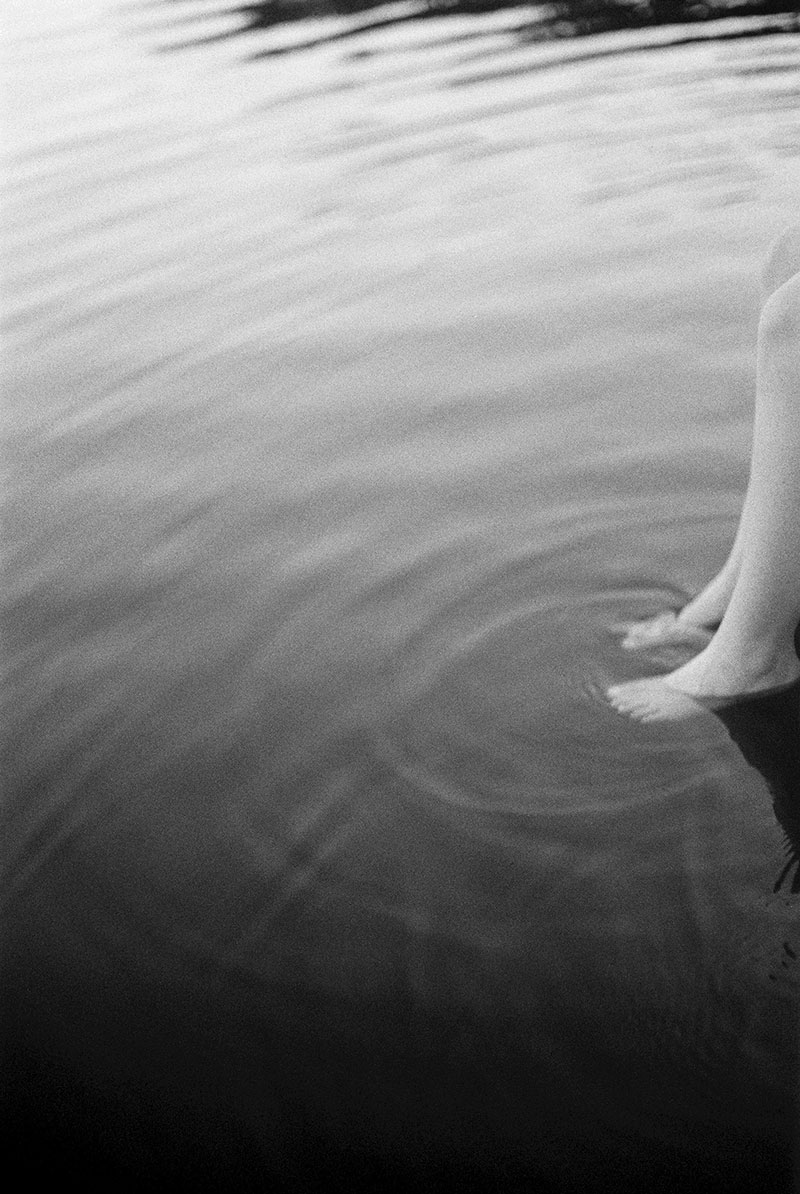
Because we never wanted to touch it.
Because we imagined primordial muck ready
to swallow us whole, inescapable
as a hungry maw.
Because it boded glass shards and sharp rocks
sent up thick coils of hydrilla, eager
to snake around our feet.
Because it wasn’t a matter of seeing
or naming—slimy red mud from buried farmland,
gushing outtake at the dam where we were warned not to dive.
Because murky stumps would still rise
when the power company lowered the lake, because every August
we’d smell the hint of dead fish.
Because we were too young to know better
we’d tuck our legs and feet into tight balls as we gingerly
plopped off the dock into the shallows.
Because in a circle, we believed
we defied physics.
Because we never wanted to touch it.
Because our feet couldn’t help it.
—Winner of the Starkey Flythe Memorial Prize, 2021
Poetry Society of South Carolina
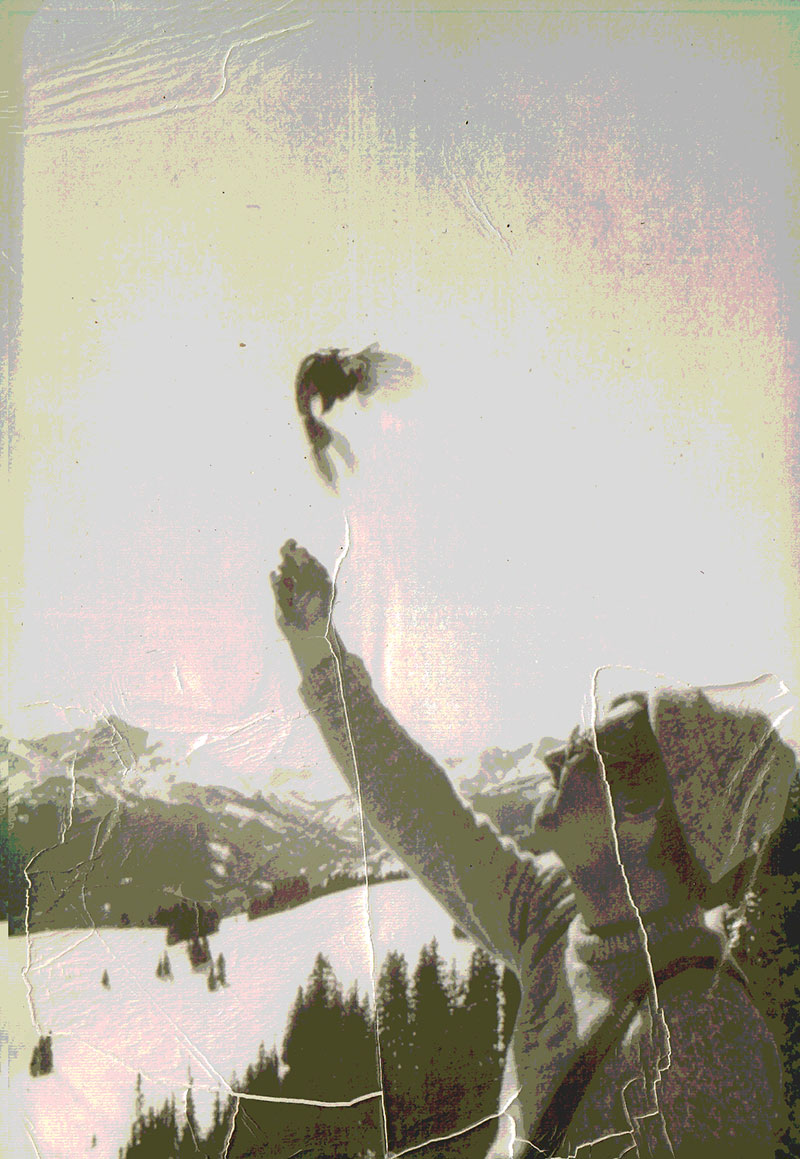
Five rows behind, I could swear you can feel me
appraising your
southern dimensions.
The way your ears remain pleasingly dainty,
your cowlick’s whorl;
above your headrest, wisps of silver
like threads from a bobbin,
unspooled in the recycled air—
strings of your glasses dangle crooked,
neck erect on your shoulders
like a lock and key.
More than this, the sheer you-ness,
this plane of yourself you’ll never entirely see.
My fingers still reach for
the soft flannel shirt, a gift six birthdays ago.
I can almost picture
the pretty attendant as she mimes instructions,
reminding all to be gentle with the man
in row 20, aisle C;
every flyaway filament, each thin strand shed
atop his shoulder, the fold of his
collar’s raveled edge.
Five rows, one century-plus of seasons—I still sit,
defender of your tender, ornery head.
Smiling in consensus.
—From Quiet Diamonds, 2021
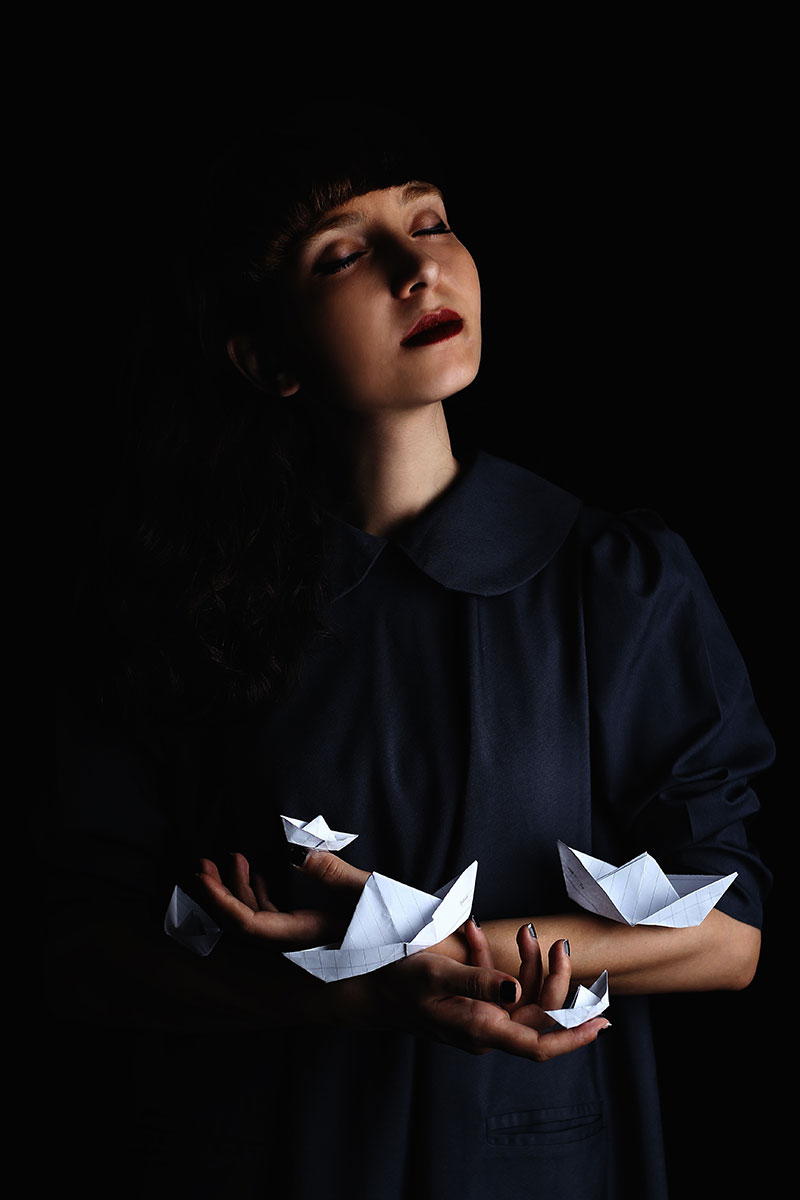
I glide the steel iron
like a ship plying steam, smooth
napkins into perfect rectangles,
soft triangles, squares;
I align patterned plaids,
flowers, birds,
colored edges, then
I lay them atop
linens hiding in cool depths
of their dining room drawer.
I walk by the table’s dark wood
with its crackled turquoise vase,
one hydrangea faded to translucent
mauve over baby blue,
tinges of green
waning. From the dryer
I gather loose bundles of clothes,
hug the radiant heat to my
breast; snap out wrinkles
like firecrackers, a
matador flicking her cape—my
pulse clicks
like an igniting burner, then
subsides to the fine art of sorting.
One gray sock tucked in another
is a rabbit, the collar I starch
is hard white bone, bright
dotted boxers I invert
and whisk are billowing
kites that I
yank down to fold,
pat into flat tidy packages.
Tomorrow they’ll find them
in drawers like forever,
my touch disappeared—these
are the workings of fingers,
contortions, my
own invisible dreams.
—From Mom Egg Review, 2018

with her red-mudded shoulders,
children skittering down one skinny
ramp to the dock in its indolent cove.
To the yellow cabin, refurbished trailer
topping the hill like a bird amidst
scrawny pine saplings; to the world’s
unfurling canvas—woods rife with
oak, cedar, scruff we explore with
bare feet, lay our noses to ground,
inhale musky maypops, pluck hidden
violets for jars, squash every white
puffball spore we spy underneath
fallen leaves, how we love their
explosions—to looming towers
of hydroelectricity, world’s largest
earthen dam harnessing riverine
power. To us who know nothing of
this, wiggling toes in shallow water,
the toss of our mother’s black hair.
Our father dancing his Scottish jig,
lips extruded in that tantalizing
grin. To the life-size plywood Santa
perched every year on the roof,
one hand raised like he’s leaving,
how his cheeks become two fading
cherries—to us cavorting for the
camera, robotic in tiny cuffed jeans,
jackets zipped tight to chins, wool hats
with earflaps. To that Christmas we
scurry about, unwrap magic balls,
dolls, tops & whistles, storybooks,
socks. To each in our printed pajamas,
how I plunk in my father’s lap, slump
in his pillow of plaid flannel arms—
to kindly silences of pastel home
movies. To muzzy bottoms, half-razed
farmsteads still settling—German,
Swiss, Dutch—porches, wells,
troughs and barns, rubble of scorched
smokehouse chimneys. To us who know
nothing of this, only our mesmeric
embers, hunter-green drapes bearing
patterns of deer, bear & pinecone-draped
boughs, our mother brushing one wisp
of stray hair, her ladies’ apron. Her
gaze from the infinitesimal kitchen.
—From Fall Lines, 2019
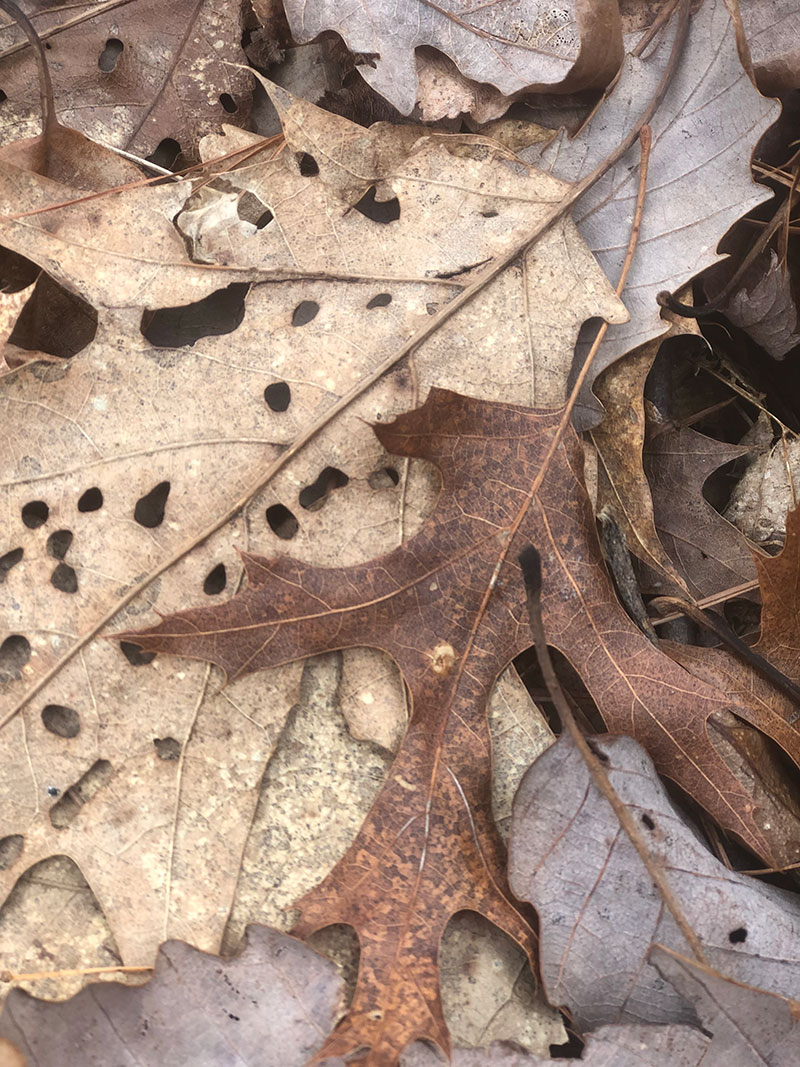
Brown leaves on the forest floor littered
in death’s common quiet
undisturbed by arbitrary motion
or unnatural lighting;
upright, we stride through tromping and
kicking, bounding through crispness
like a dive in cold water
shivers of delight and unease
prickling us back to
the continuum.
I restudied decomposition just now, the
life filled litter of decay
a science so lovely
I almost laughed
remembering we too are designed for this;
dropping our dead selves,
letting saprophytes start their undoing
birthing swamp mire and
sapling, flower pod,
blood root, lung wort, even
undisturbed forest.
—From Kakalak, 2015
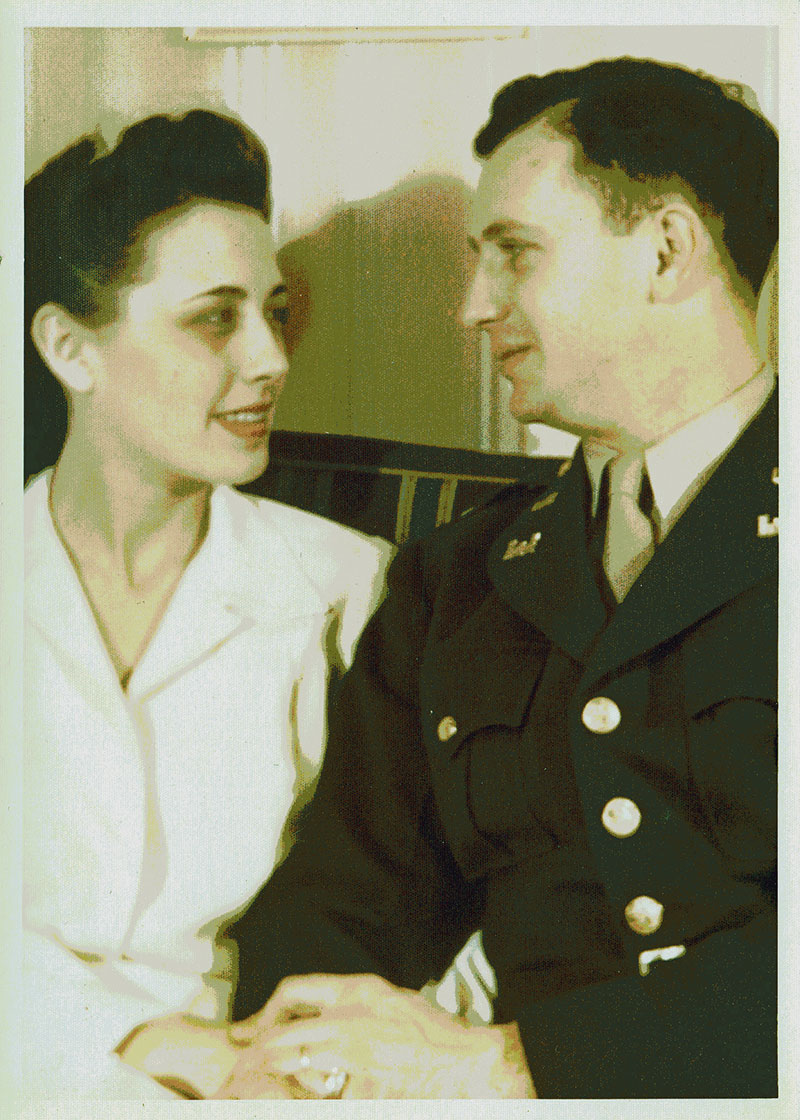
I’ve kept the book forever—
1930s Sonnets from the Portuguese, blue cloth graying,
flyleaf with its tiny inscription:
To Nita, from Paul
June 14, 1940
My mother’s first intended Paul, the only name
I ever knew—a Lutheran seminarian,
she just turned twenty.
Below, he’s transcribed lines of Jane Clement,
a poet of the time:
Tell me it is enough / that I must not
stain my hands / with the world’s blood…
I splay it open on my desk,
its frayed yellow spine still another
raveled mystery.
War will soon come—my father
will report for duty, sweep my mother off her feet.
Paul, relegated to a shelf.
Here on my floor I’ve brought out the cardboard
boxes—my father’s war letters nearly daily,
brittle papers
full of urgent moons and beloveds,
tents on a Philippine shore, buzz of bombers.
He tries to make war
sound exotic—the old days of gee
and golly, food’s not so bad—I met two Aussies.
His first taste of papaya. Strand of their little daughter’s hair.
I can see my mother’s hand, how each envelope
is torn ragged. I can feel her held breath,
fingers tracing my father’s own form of poetics.
Sometimes I wonder why my mother
kept the book forever.
—From Fall Lines, 2021
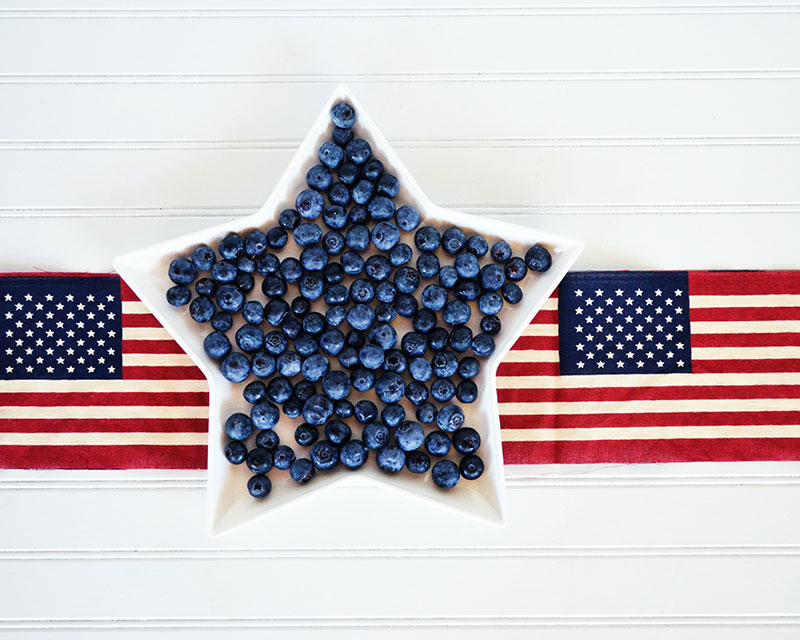
Plump, blue-black,
near-cartoon iterations, you
fill the container like a family unit.
I’m suspicious as I pry back
the plastic top, label saying
Product of Mexico.
Are you safe? Are you sweet, lush,
approved like American-grown?
Sometimes I go picking in June,
rural blueberry farm with my friend.
We wear buckets strapped at
our waists, reach our hands into
sequestered niches to nab clusters
of near-bursting berries. We pop
them in mouths, searching row after
row walled by blueberry bushes.
In winter we reach
for our imports: Honduran bananas,
Peruvian asparagus, Chilean grapes
fat and seedless. How we love
you handpicked and delivered
to our grocery, our tables.
How we don’t want your faces
amongst us; even your littlest, most
tender, not quite dear enough
for American tastes.
—From Indolent Books’ What Rough Beast Series, May 22, 2019
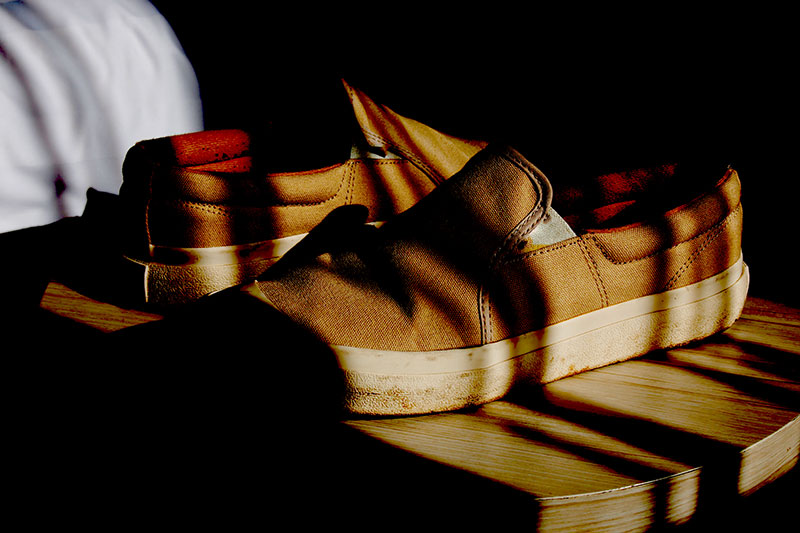
My husband’s soaking his summer sneakers
the ones we both thought were terribly cool
he’s weighted them down with the super-sized bottle of Lysol
from Sam’s I’d left sitting for years in the back
of the lowest laundry cabinet—O, I find this a hopeful thing
tan canvas turned dark as tannin, sunken and
surrendered in faint clinging bubbles like two willing hands—O
where once the brown plastic tub perched unabashed
on the Corian counter would have galled me—what
a glory I find now in this clutter
of thick sinking laces, insoles yellowed, bend of the soles
to accommodate the mercy
of water.
—From Indolent Books’ Covid Series, March 19, 2020
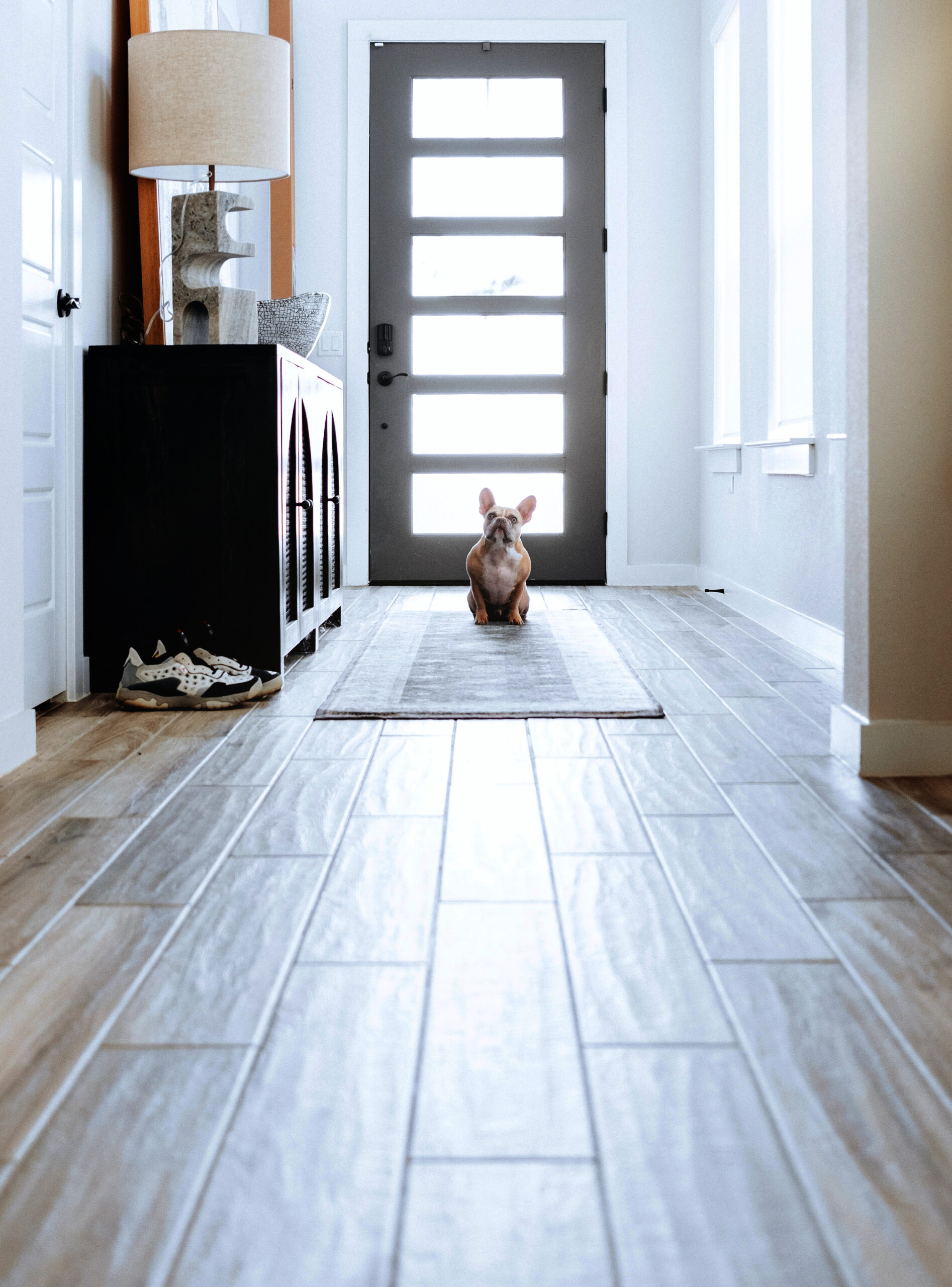
Months after framing, the tile setter finds a wall
in the new walk-in shower that is slightly off-plumb
which means she must cut the pieces at a perfect angle
so they’ll seamlessly line up at the ceiling.
Wood expands and shrinks, our builder reminds us
while the virus sticks like a broken umbrella.
We backorder appliances, mullioned windows,
solid cabinet doors, soft-close drawers on metal rollers,
learn to purchase accessories online—brushed nickel pulls,
one last bronze doorknob, forever out of stock.
Our painter moves meticulously as Michelangelo;
near the end, we believe we may never live alone—yet
the beauty of his finishes, his Zen sanded
seams, gleaming semi-gloss grays and modern umbers.
Two years later, baseboards gap at the sheetrock,
dust balls shimmer in the hallway’s morning light
like galactic tumbleweeds. We seem not to care.
In the den corners, our number-one-white-oak has buckled;
no one notices because the dog’s crate resides
there, draped with a worn-out throw.
Rooms begin to smell of home. The dog no longer
breaks through the invisible fence.
Outside the front door, a sparrow builds her nest atop
the column; three fledglings peek over the edges
before finding their frangible wings.
Every living thing takes one more step.
—from Twelve Mile Review, Winter 2022